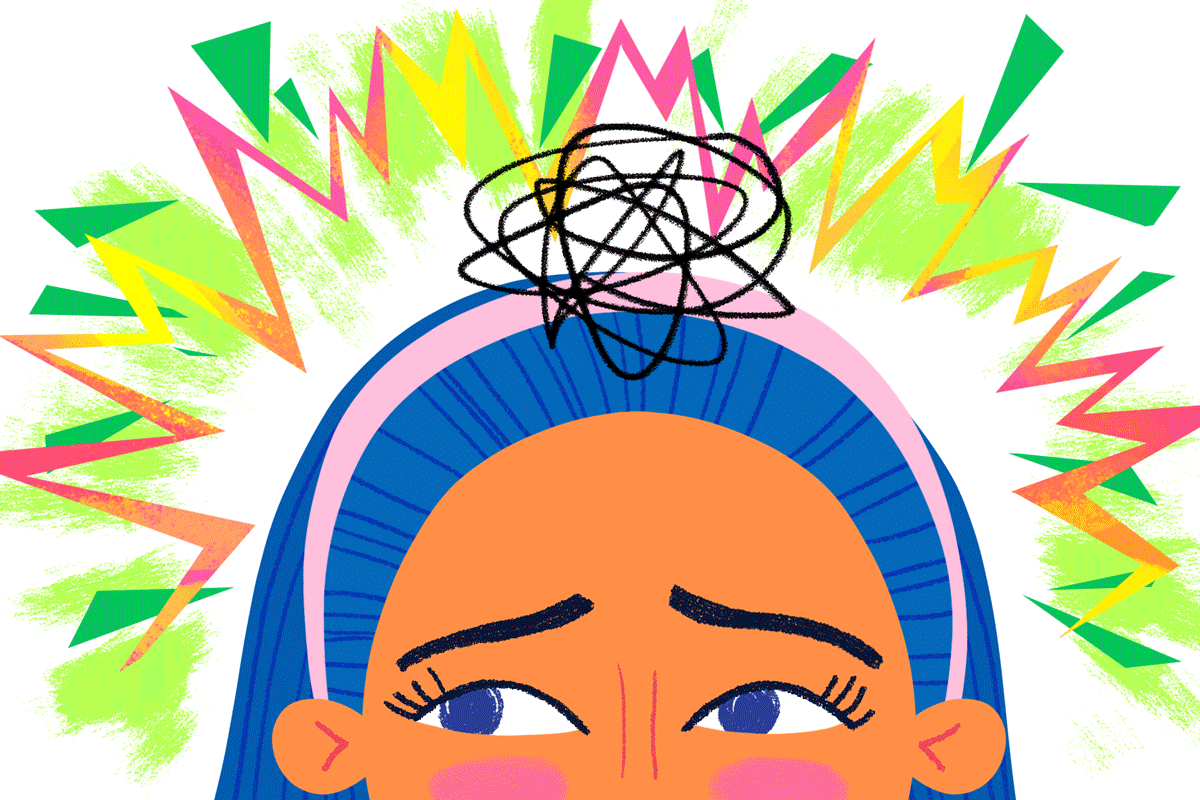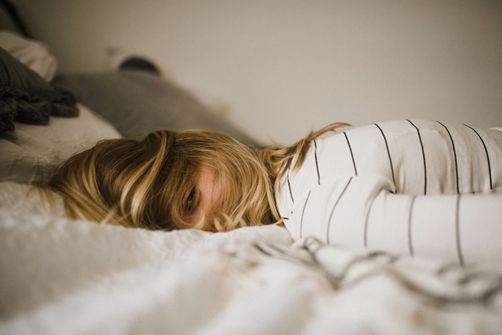
Foods That Boost Mood: A Practical Guide for Women to Support Emotional Health and Energy
The connection between what we eat and how we feel is powerful—certain foods provide the nutrients our brain needs to support mood, energy, and overal...

For many women, hormonal migraines are a frequent and disruptive issue. These migraines are often triggered by hormonal changes, particularly fluctuations in estrogen and progesterone, during menstruation, pregnancy, or menopause. What many people don’t realize is that poor sleep is another major contributor to these migraines. Research has shown that sleep disturbances can destabilize hormone levels, increasing the likelihood of migraines.
This guide will break down how sleep and hormonal migraines are linked and offer effective, evidence-based strategies for prevention through proper sleep hygiene.

Hormonal migraines are triggered by changes in hormone levels, specifically drops in estrogen. These fluctuations are most pronounced during certain life phases like menstruation, pregnancy, or menopause. However, sleep—or lack thereof—can also play a key role in these migraines.
Understanding how a lack of sleep contributes to hormonal migraines is key. When sleep is disturbed, hormone levels fluctuate, triggering migraine attacks:
Improving sleep hygiene can be a powerful, natural way to reduce hormonal migraines. Incorporating healthy sleep practices ensures better hormonal balance, reducing the chances of a migraine attack. Here are several effective strategies:
Maintaining a consistent sleep schedule can help regulate your body’s circadian rhythm and stabilize hormone levels. Studies show that women who go to bed and wake up at the same time daily experience fewer migraines.
The environment in which you sleep plays a critical role in how well you rest. For migraine sufferers, a cool, dark, and quiet room can help reduce migraine triggers.
Stress management is key to reducing both sleep disturbances and migraines. Since stress is a major migraine trigger, learning to calm your mind before sleep can help you avoid late-night cortisol spikes.
Certain foods and habits can worsen sleep quality and trigger migraines. Caffeine, alcohol, and heavy meals before bedtime can disrupt sleep and increase the chances of a migraine attack.

By addressing sleep disturbances, women can better manage hormonal migraines and reduce their frequency. Here’s what the research shows:
Q: How does poor sleep trigger hormonal migraines?
A: Poor sleep disrupts the balance of key hormones like cortisol, melatonin, and serotonin, which are closely linked to migraine occurrence. Elevated cortisol from sleep deprivation increases stress, while reduced melatonin and serotonin disrupt pain regulation, making hormonal fluctuations more likely to trigger migraines.
Q: What are hormonal migraines, and why are women more prone to them?
A: Hormonal migraines are headaches triggered by fluctuations in estrogen levels, typically during menstruation, pregnancy, or menopause. Women are more prone to these migraines because estrogen and progesterone influence how the brain responds to migraine triggers, and hormonal changes during these times can destabilize the brain’s normal functions.
Q: How can sleep hygiene help prevent hormonal migraines?
A: Practicing good sleep hygiene—such as maintaining a consistent sleep schedule, creating a dark and cool sleep environment, managing stress before bed, and avoiding migraine triggers like caffeine—can help regulate hormones, reduce migraine frequency, and improve overall sleep quality.
Q: Can melatonin supplements help prevent hormonal migraines?
A: Yes, melatonin supplements have been shown to improve sleep quality and reduce the frequency of migraines in some women. Melatonin not only regulates sleep but also has anti-migraine properties. However, it’s important to consult a healthcare professional before starting supplements.
Q: What relaxation techniques are helpful for improving sleep and preventing migraines?
A: Techniques such as deep breathing, progressive muscle relaxation, and meditation are effective at reducing stress and promoting relaxation before bed. Reducing stress can decrease cortisol levels, which in turn lowers the risk of triggering hormonal migraines.
The information provided in this article is intended for informational purposes only and should not be considered medical advice. Always consult with a healthcare professional before starting any new treatment, especially for managing migraines or other health conditions. The effectiveness of sleep hygiene strategies and supplements like melatonin can vary between individuals, and it is important to seek personalized guidance from a qualified healthcare provider.
For women suffering from hormonal migraines, improving sleep hygiene offers a natural and highly effective way to reduce their occurrence. By focusing on consistent sleep schedules, optimizing the sleep environment, and reducing stress, you can decrease hormonal fluctuations and create a more stable environment for sleep and well-being.
With the right strategies, you can regain control over your sleep and minimize the impact of hormonal migraines on your life.

The connection between what we eat and how we feel is powerful—certain foods provide the nutrients our brain needs to support mood, energy, and overal...

In a world where social drinking often feels like the norm, mindful drinking offers an empowering way for women to reflect on their relationship with ...

In today’s hyperconnected world, online wellness communities have become essential spaces for many women. Whether they seek advice on mental health, f...

Menstrual synchrony—the phenomenon where women who live or spend a lot of time together seem to align their menstrual cycles—has intrigued researchers...

You’ve heard about the importance of sleep, and you know gut health is vital, but did you know these two are deeply connected? And for women, this rel...